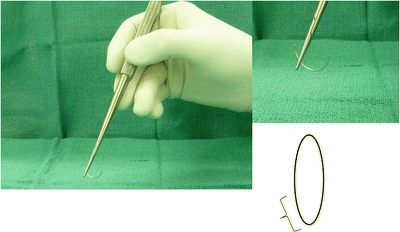Fig. 15.1
(a) The tangential line at the tip of the needle must be right angled. (b) Oblique penetration of the needle. (c) Right-angled penetration of the needle
When puncturing the vascular wall (especially that of the graft) with a curved suturing needle, minimizing the distance that it runs inside the vascular wall both minimizes tissue damage and prevents distortion of the anastomotic line. Because the suturing needle forms a partially circular arc, every effort must be made to make the penetration into the vascular wall at a right angle to the straight line from its tip. If this is done, the tip of the needle will penetrate the vascular wall at a straight right angle, meaning that less pressure is needed to pass it through the wall (Fig. 15.2). Surgeons will experience for themselves the sensation of the sharp needle tip precisely penetrating the tissue.
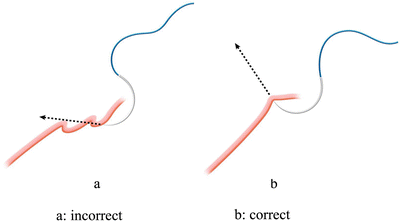

Fig. 15.2
(a) Oblique penetration of the needle. (b) Right-angled penetration of the needle
2.
Adjusting the way of holding the needle with a needle holder
In OPCAB, the anastomosis site cannot easily be moved once the coronary artery has been secured with a stabilizer. Particularly in the circumflex branch region or in the peripheral region of the right coronary artery, an anastomosis site is deeper than it would be on-pump, and needle handling is restricted. To ensure accurate needle handling in restricted anastomosis conditions, it is important to adjust the way that the needle is held. In order to handle each needle at the optimum puncture angle for that particular needle, surgeons must know about a range of different methods of grasping needles (Figs. 15.3, 15.4, 15.5, 15.6, 15.7, and 15.8). By doing so, they can perform anastomoses with almost no shifts in posture or hand position.
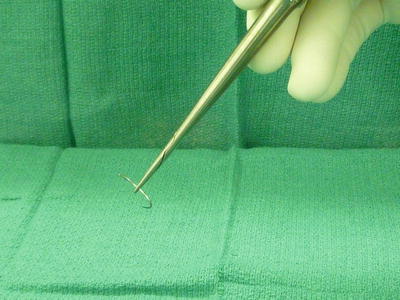
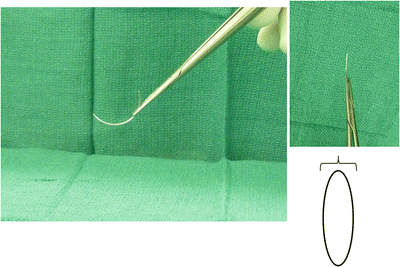
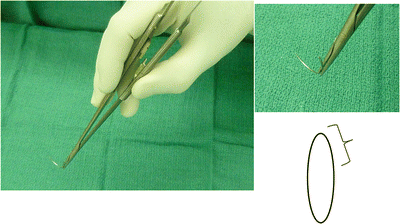
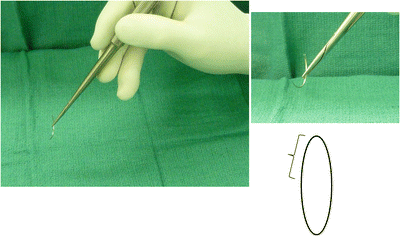
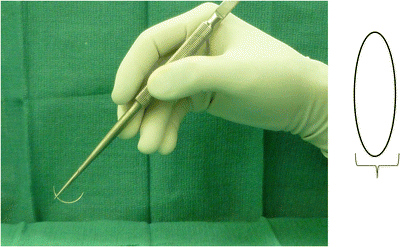

Fig. 15.3
Right-angle needle holding

Fig. 15.4
Straight-angle needle holding for the distant toe or the heel: curly bracket

Fig. 15.5
Oblique-angle backhand needle holding for the distant far side: curly bracket

Fig. 15.6
Oblique-angle forehand needle holding for the distant near side: curly bracket

Fig. 15.7
Reversed straight-angle needle holding for the toe or the heel of this side: curly bracket

